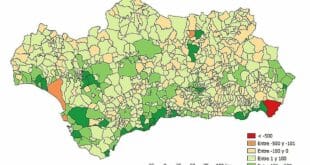ING has refunded a customer the 3,990 Euros that was stolen from their credit card due to the intervention by the Spanish consumer’s organisation Facua.
The incident took place in August 2023 while the woman, along with her husband, was on vacation in Burgos. The purse containing her phone, keys and wallet was stolen in the cafeteria of the hotel while she and her husband were having breakfast.
Her husband called ING as soon as he became aware of theft. He called the bank six times but each time he was directed to a voicemail asking for access codes to be sent to the stolen mobile phone in order to authenticate the process.
He then called his daughter to ask her to inform the bank of the problem. Soon after, his daughter called and informed him that the cards were blocked. The man who is co-signatory to his wife’s account began receiving notifications informing him that several transactions were made with the stolen card. The thief had taken out 2,490 euro in cash, and made purchases of 1,500 euro.
The bank was contacted more than six time, but no one answered.
The couple’s child returned to the branch. An employee there blocked the cards, as well the account and marked all transactions as “fraudulent”. They then filed a report with the police, including surveillance footage taken from hotel cameras. They continued to pursue the complaint after returning to La Coruña.
ING has refused to refund the amount stolen, arguing that it is the cardholder’s responsibility to “take the necessary measures to protect their card and security code”. In a response signed by ING’s head of customer ombudsman, the bank denied any responsibility.
Facua Gallicia then contacted Bank of Spain. The consumer association lodged a complaint under Article 43 of Royal Decree Law 19/2018 regarding payment services and other emergency measures, which was passed on 23 November. According to this article, “the payment service users will only obtain rectification from the payment service providers of an unauthorised payment transaction or a payment transaction that has been incorrectly performed if they inform them without undue delays”. The complaint was also based on Article 44.1 from Royal Decree 19/2018 of 23 November. This article states that, if a user denies authorisation to pay, the payment service providers must “prove” that the transaction was accurately recorded, accounted for and authenticated.
ING finally informed the customer that “after analysing all the facts”, it had decided to refund the 3,990 Euros she had claimed since the theft of the previous year.
 Costa News Spain Breaking News | English News in Spain.
Costa News Spain Breaking News | English News in Spain.






